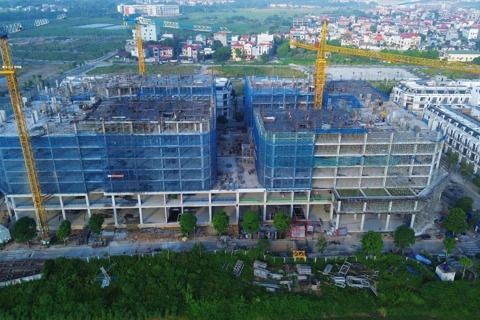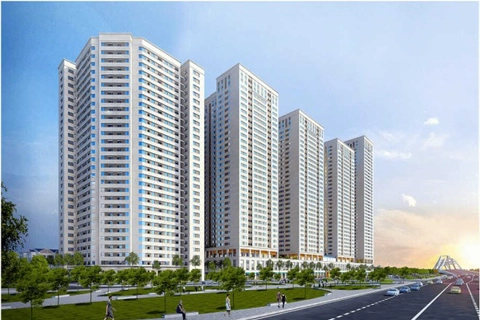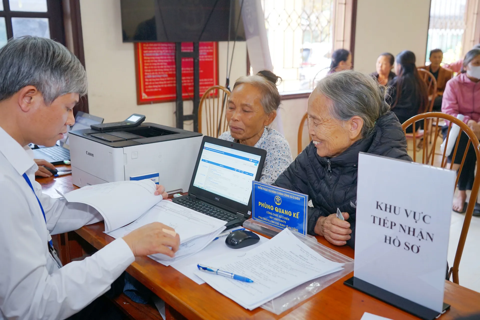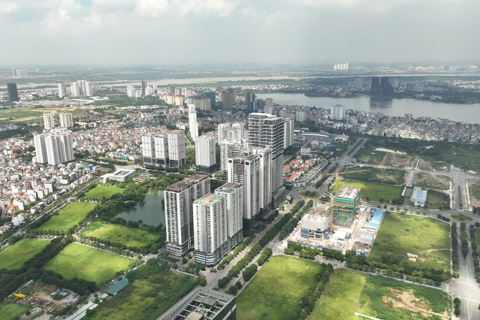Property
New financial tools proposed to develop real estate market
Oct 28, 2017 / 07:49 AM
The Ministry of Construction should use several new financial tools to diversify the investment capital sources for the development of the local real estate market, the Ho Chi Minh City People’s Committee proposed.
Under a document sent to the Ministry of Construction on October 26, the city proposed some solutions to help the local real estate market develop sustainably and transparently.
Specifically, according to the committee, research should be made to create a legal framework for a number of new financial tools that help develop the local real estate market.
“New financial tools for the property market such as the housing savings fund or the real estate investment trusts (REITs) should be piloted to diversify the investment capital,” it wrote.
The city also recommended the ministry to issue urban bonds and construction bonds besides mobilizing capital from domestic and foreign banks, credit and financial institutions to have funds for the development.
Notably, the city proposed to issue a number of tax measures to ensure a fair access to housing of the people. Accordingly, besides taxing assets on land and the added value of land and property on land from infrastructure investment, high tax rates on owners of more than one house or property transactions that are traded within a year after the purchase must be applied.
Previously, the Ministry of Finance also said it will compile a law on asset tax, including taxes on owners of more than one house, to limit speculation as well as wasteful use of real estate assets.
This stirred the realty market which only recently escaped a prolonged frozen period to enter recovery thank to a combination of support measures, but currently still lacked market information transparency.
According to property expert Dang Hung Vo, Vietnam does not have adequate market information, which will make it difficult to tax second-home owners effectively. It is not the right time to impose asset tax on home owners, he said.
Matthew Powell, director of property services firms Savills Ha Noi, said that many countries now imposed taxes on second-home owners, but in Vietnam, caution was required.
At present, Vietnam’s real estate market was stable, thus, the tax imposition could cause a decline in market demand and purchasing power, he said, adding that tax should be applied only when there was significant imbalance between market supply and demand.
Vu Van Phan, deputy director of the Housing and Real Estate Management Department under the Ministry of Construction, said the real estate market was especially sensitive to policy changes.
For the long-term, the imposition of asset taxes, including home-ownership tax was necessary, but when to tax, how to tax and who would be taxed needed to be studied thoroughly, Phan said.
Phan added that purpose of imposing tax would be to prevent speculation and encourage home owners to use their assets more effectively.
Specifically, according to the committee, research should be made to create a legal framework for a number of new financial tools that help develop the local real estate market.
“New financial tools for the property market such as the housing savings fund or the real estate investment trusts (REITs) should be piloted to diversify the investment capital,” it wrote.
The city also recommended the ministry to issue urban bonds and construction bonds besides mobilizing capital from domestic and foreign banks, credit and financial institutions to have funds for the development.

The housing savings fund or the real estate investment trusts (REITs) should be piloted to diversify the investment capital.
|
Previously, the Ministry of Finance also said it will compile a law on asset tax, including taxes on owners of more than one house, to limit speculation as well as wasteful use of real estate assets.
This stirred the realty market which only recently escaped a prolonged frozen period to enter recovery thank to a combination of support measures, but currently still lacked market information transparency.
According to property expert Dang Hung Vo, Vietnam does not have adequate market information, which will make it difficult to tax second-home owners effectively. It is not the right time to impose asset tax on home owners, he said.
Matthew Powell, director of property services firms Savills Ha Noi, said that many countries now imposed taxes on second-home owners, but in Vietnam, caution was required.
At present, Vietnam’s real estate market was stable, thus, the tax imposition could cause a decline in market demand and purchasing power, he said, adding that tax should be applied only when there was significant imbalance between market supply and demand.
Vu Van Phan, deputy director of the Housing and Real Estate Management Department under the Ministry of Construction, said the real estate market was especially sensitive to policy changes.
For the long-term, the imposition of asset taxes, including home-ownership tax was necessary, but when to tax, how to tax and who would be taxed needed to be studied thoroughly, Phan said.
Phan added that purpose of imposing tax would be to prevent speculation and encourage home owners to use their assets more effectively.








